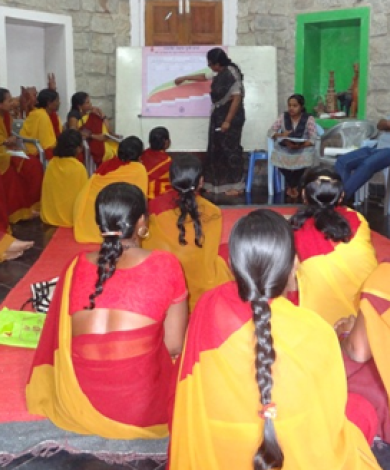Background
The objective of this two year project was to build sustainable human capacity to respond to nutritional emergencies through strengthening pre- and in-service training courses within developing countries that are prone to emergencies. The project was implemented in Kenya and Bangladesh by NutritionWorks (NW) in collaboration with the ENN with funding from the US Office for Foreign Disaster Assistance.
Project summary
In each country, the project began with a scoping exercise to establish the status of pre-service training (PST) and in-service training (IST), the needs and priorities of key stakeholders, and an examination of how and where training in nutrition in emergencies (NIE) could be enhanced in a sustainable way.
Kenya project
In Kenya the project instigated a colloquium in Lodwar for 18 staff of 8 Higher Education Institutes (HEIs) in September 2010 with the objectives of exposing lecturers and professors to NIE and to develop action plans for Higher Education Institutions (HEIs) to incorporate NIE into existing diploma and degree courses in Kenya and the region.
Key outputs were:
- Agreement on a core NIE curriculum for Kenya (BSc and diploma level);
- Joint action plans to improve coordination and communication across HEIs and with Ministry of Public Health and Sanitation (MoPHS)/Ministry of Medical Services (MoMS) and other nutrition bodies (KINDI, Kenya Inter-University Nutrition Taskforce (KIUNT), Nutrition Technical Forum (NTF);
- Individual action plans by participating HEIs to implement the agreed core curriculum.
- The unintended output of bringing people together who rarely meet to discuss issues concerning their curricula and teaching or developments in NIE.
A follow up in March 2011 noted clear progress in implementing agreed action plans, with all HEIs having adapted their courses with new content. Some obstacles were identified to further progress in enhancing collaboration between HEIs and service providers, such as MoPHS/MoMS and NTF, and suggestions were made for addressing them.
Bangladesh project
The project began in Bangladesh in January 2011. NW is partnered with the Training and Assistance for Health and Nutrition (TAHN) Foundation and works in collaboration with the Institute of Public Health and key UN agencies to ensure that activities become streamlined and are sustainable. An NIE subgroup of the existing Nutrition Working Group was set up following a high level NIE meeting held in Dhaka in February 2011. The HTP materials were adapted to the Bangladesh context for a Training Of Trainers (TOT), with the aim of equipping a cadre of trainers to deliver in-service field based trainings for staff working in emergency-prone areas. The TOT took place in Dhaka from 25-28th July 2011, involving 12 participants from NGOs, government departments and HEIs who have a role in management and training of staff.
Two field-level trainings took place in September 2011 in Barguna and Anwara - two emergency-prone areas of the country -for participants from government bodies and NGOs. The training combined theory and field practice with the objectives of introducing or updating participants on key concepts to ensure that future emergency response incorporates nutritional considerations. The training module was made available for sharing with other actors in Bangladesh and for use in ongoing training programmes.


